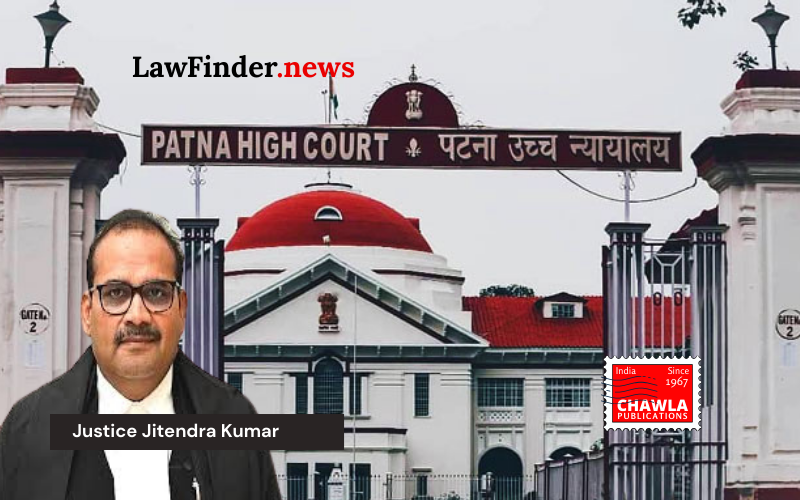Court Rules Summoning Order Against Single Accused is Interlocutory, Advises Complainant to Pursue Other Legal Remedies
In a significant ruling, the Patna High Court has dismissed the criminal revision petition filed by Laxmi Devi, also known as Suman Devi, challenging the summoning order issued by the Judicial Magistrate in Bagaha, West Champaran. The judgment, delivered by Justice Jitendra Kumar, clarified the status of the summoning order as interlocutory for the complainant and advised alternative legal pathways for addressing grievances.
The case involves a complaint filed by Laxmi Devi against 23 individuals, including Pankaj Tiwari, accusing them of multiple offences under the Indian Penal Code (IPC), including Sections 119, 143, 147, and 120B, among others. However, the Judicial Magistrate took cognizance only against Pankaj Tiwari for offences under Sections 323 and 506/34 IPC, leading the complainant to seek further action against the remaining accused and additional charges.
Justice Kumar, after hearing arguments from both the complainant's counsel, Mr. Indradeo Prasad, and the Additional Public Prosecutor, Mr. Mithlesh Kumar Khare, concluded that the revision petition was not maintainable under Section 397(2) of the Criminal Procedure Code (Cr.PC) and its corresponding provision in the Bharatiya Nagarik Suraksha Sanhita (B.N.S.S.), as the order was interlocutory in nature. The court emphasized that the proceedings would not terminate even if the petitioner's plea was accepted, which restricts the scope for revision under the specified sections.
The judgment highlighted the distinction between interlocutory and intermediate orders, citing precedents such as Amar Nath v. State of Haryana and Madhu Limaye v. State of Maharashtra. It elucidated that while intermediate orders can be subject to revision as they may conclude proceedings, interlocutory orders do not have such finality. Consequently, the complainant’s petition against the summoning order was deemed interlocutory.
Justice Kumar advised Laxmi Devi to consider invoking the inherent jurisdiction of the High Court under Section 482 Cr.PC or Section 528 B.N.S.S. for relief. Additionally, the complainant has the option to pursue the inclusion of additional accused and charges at a later trial stage through Sections 319 and 216 of Cr.PC or Sections 358 and 239 of B.N.S.S., respectively, following the recording of prosecution evidence.
The dismissal of the petition underscores the procedural intricacies in criminal litigation, particularly concerning the classification of judicial orders and the avenues available for challenging them. This ruling serves as a precedent for understanding the scope of revision petitions in cases involving interlocutory orders, reaffirming the necessity for strategic legal approaches in criminal proceedings.
Bottom Line:
Revision petition by complainant challenging summoning order and seeking addition of accused and offences held not maintainable under Section 397(2) Cr.PC/438(2) B.N.S.S., as the impugned order is interlocutory for the complainant.
Statutory provision(s): Section 397(2) Cr.PC, Section 438(2) B.N.S.S., Section 482 Cr.PC, Section 528 B.N.S.S., Section 319 Cr.PC, Section 358 B.N.S.S., Section 216 Cr.PC, Section 239 B.N.S.S.
Laxmi Devi @ Suman Devi v. State of Bihar, (Patna) : Law Finder Doc Id # 2794375




